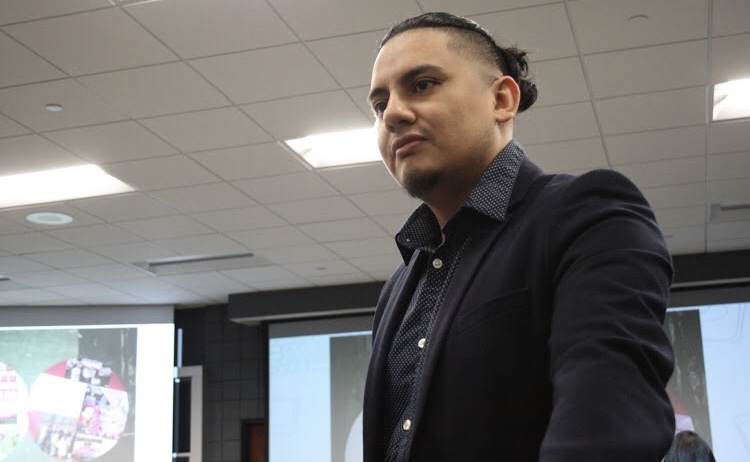¡PALENQUE!: Cross Cultural Exchange Among Indigenous and African Peoples in 17th Century Veracruz, Mexico
Thu, January 28, 2021 2:00 PM at via Zoom
Christian Ramirez will present his dissertation at 2 p.m. Thursday Jan. 28.

¡PALENQUE!: CROSS CULTURAL EXCHANGE AMONG INDIGENOUS AND AFRICAN PEOPLES IN 17th CENTURY VERACRUZ, MEXICO
ABSTRACT: With the arrival of 16th century Spanish migrants to the Americas came new geopolitical identities, racial and cultural hierarchies, and the transformation of social relationships between and among Indigenous communities in Mesoamerica. The Spanish were accompanied by both free and enslaved Africans who transformed the social, cultural, and racial structures of what would later become New Spain. In the context of this historical reality, this dissertation will explore two Afro-Indigenous palenques, or self-liberated settlements, by the names of San Lorenzo de los Negros (Yanga) and Nuestra Señora de Guadalupe de los Morenos de Amapa (Mandinga), using a case study approach that combines analysis of primary archival data and secondary literary sources. By exploring self-liberated communities, I will reconstruct a narrative about Afro-Indigenous alliances and their multiple forms of collective resistance against their colonial conditions. The goal is to historicize the African presence as they coalesced with the Indigenous world in New Spain. Additionally, my goal is to demonstrate how European modernity was a key operating ideology in the assignment of their racial/ethnic identities.
This dissertation examines the following: 1) investigates and trace the historical processes that made colonial Veracruz a location of cross-cultural exchange; 2) to examines how two distinct colonized groups adapted themselves to their new social relations initiated by Spanish colonialism in order to form their respective palenques; 3) explore how the Spanish racialization project reorganized the racial/ethnic identities of its’ subjects for colonial stability. Overall, this dissertation addresses the literary gap in Sociology and Chicano/Latino Studies concerning the social processes that created the need for palenques during the colonial Mexican era.
COMMITTEE MEMBERS:
CHAIR: Dr. Brendan Mullan
Dr. Isabel M. Ayala
Dr. Eric Juenke (Political Science and Chicano/Latino Studies)
Dr. Steven J. Gold
Christian is a dual PhD. candidate in the Chicano/Latino Studies Program and Department of Sociology at Michigan State University. Born in Saltillo, Coahuila Mexico Mr. Ramirez is a first-generation Chicano in the U.S. and grew up along the Gulf Coast in Corpus Christi, Texas. His academic focus engages the cultural exchange among and between Indigenous and African peoples in Veracruz, Mexico during the 17th and 18th century. He is particularly interested in how both groups coalesced to create autonomous Afro-Indigenous communities known as Palenques. His work aims to expand the theoretical writing of self-liberated communities in colonial Mexico through a decolonial paradigm. The intent of his scholarship is to complicate the racial history of Mexico, confront the concept of mestizaje as a product of modernity, and build solidarity among communities of color. To date, his academic work has led to international presentations in the Dominican Republic, Canada, Spain, and the U.S. His archival research has opened opportunities for Mr. Ramirez to work in Mexico City, Mexico; Seville, Spain; and archival depositories across the U.S.

